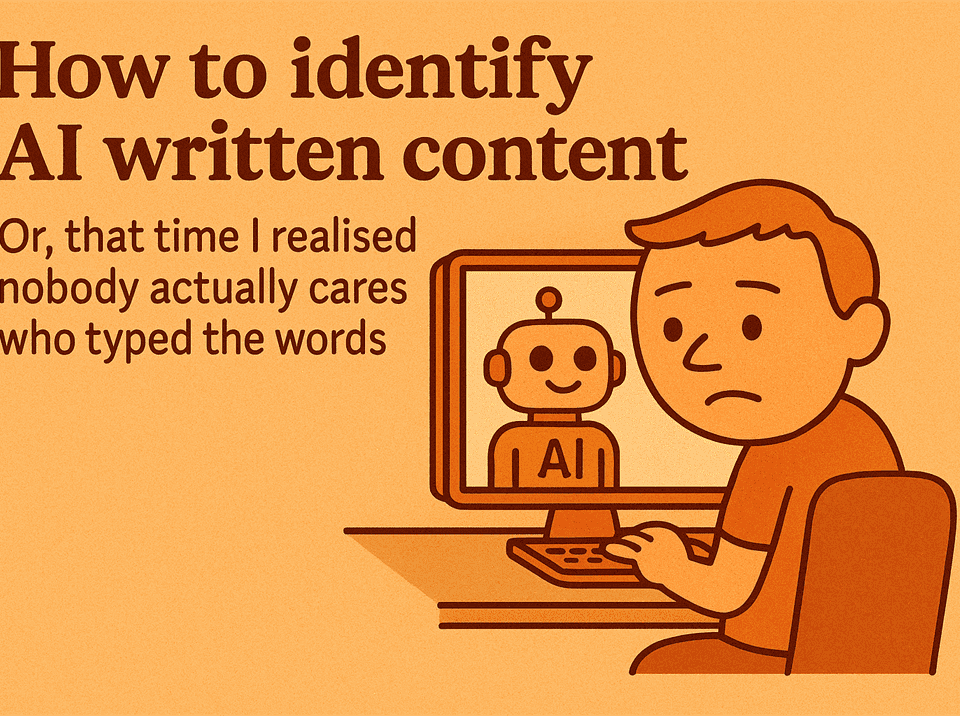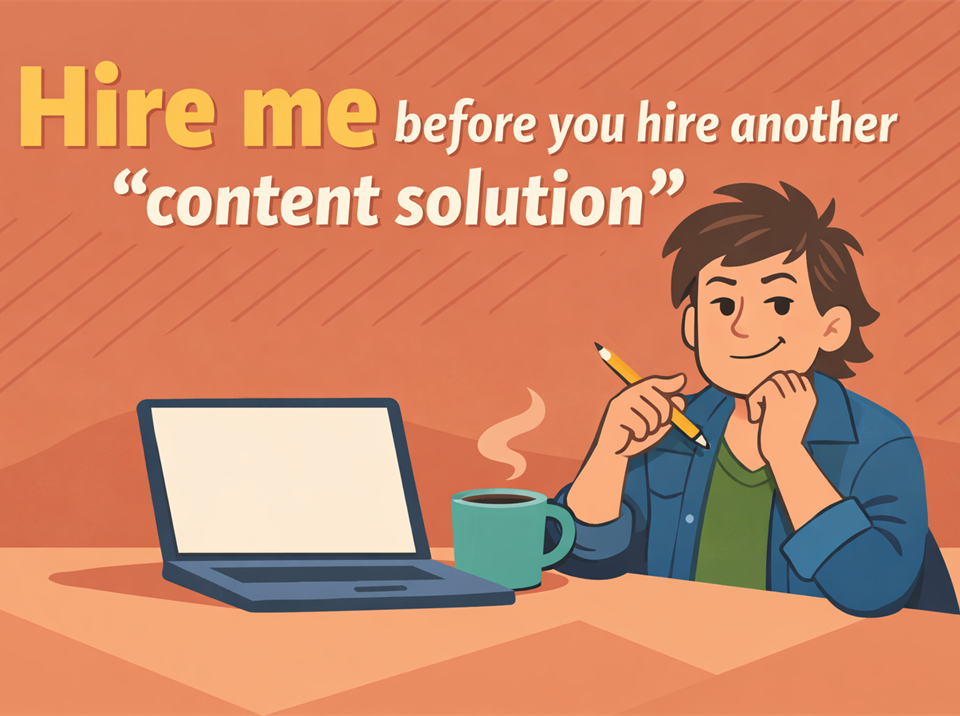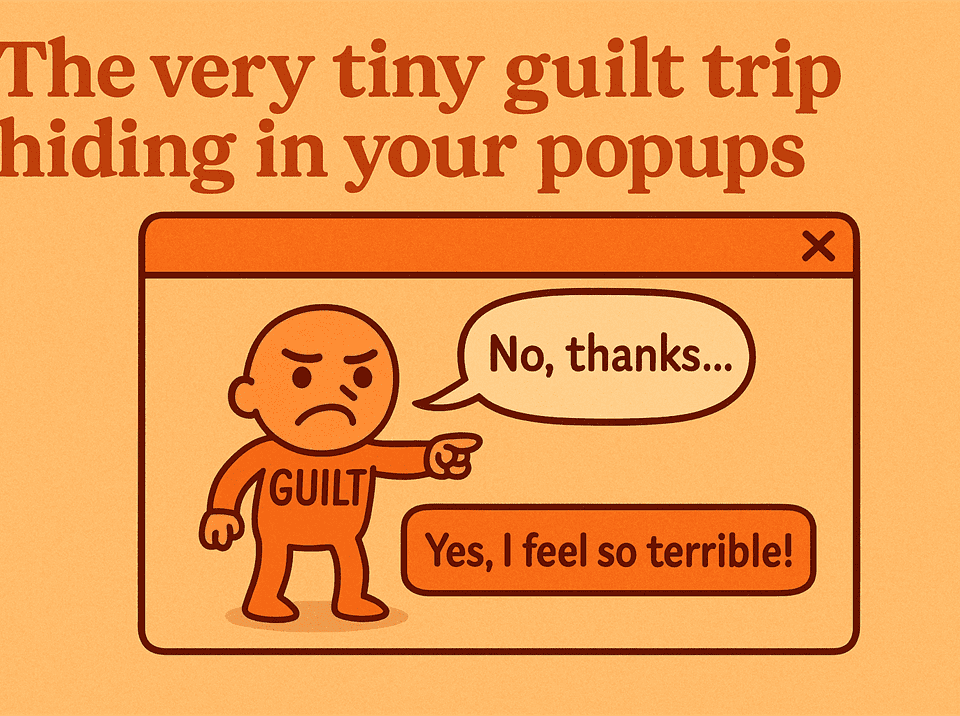How to build an AI-assisted research assistant
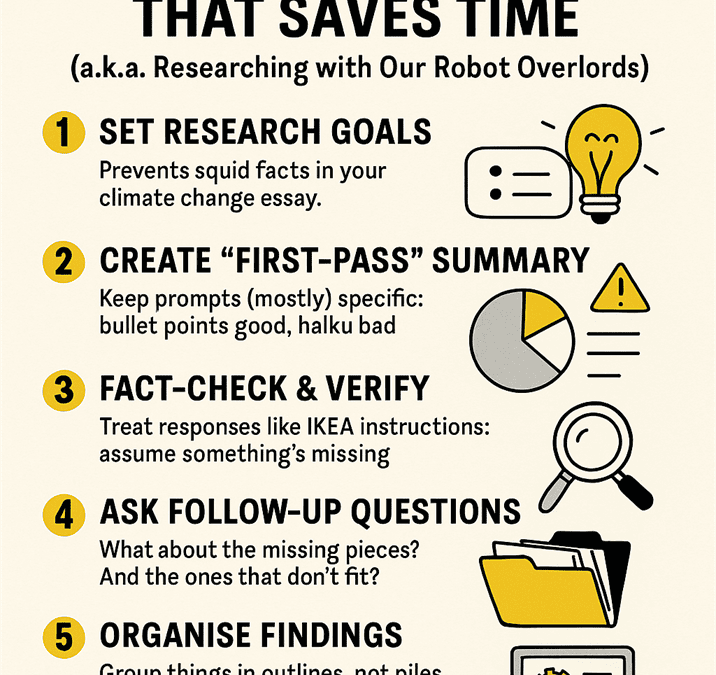
(A field guide for curious minds, procrastinators, and people who like to look smarter than they feel)
Ah, the dream. Type a question into an AI, sip your tea, and emerge moments later as an overnight expert on 14th-century Mongolian trade routes or the thermal conductivity of marshmallows.
Tempting, right?
But raw AI answers are like IKEA furniture instructions. You’ll get something that resembles the final product, but you might also end up with three leftover screws and a vague sense of dread.
AI is a wonderful starting point, emphasis on starting.
It can get you 60% of the way there, but that last 40%? That’s where the good stuff happens, fact-checking, verifying, and turning “AI-says-so” into “I-know-so.”
Let’s explore:
First, I’m experimenting with infographics because apparently readers like them:
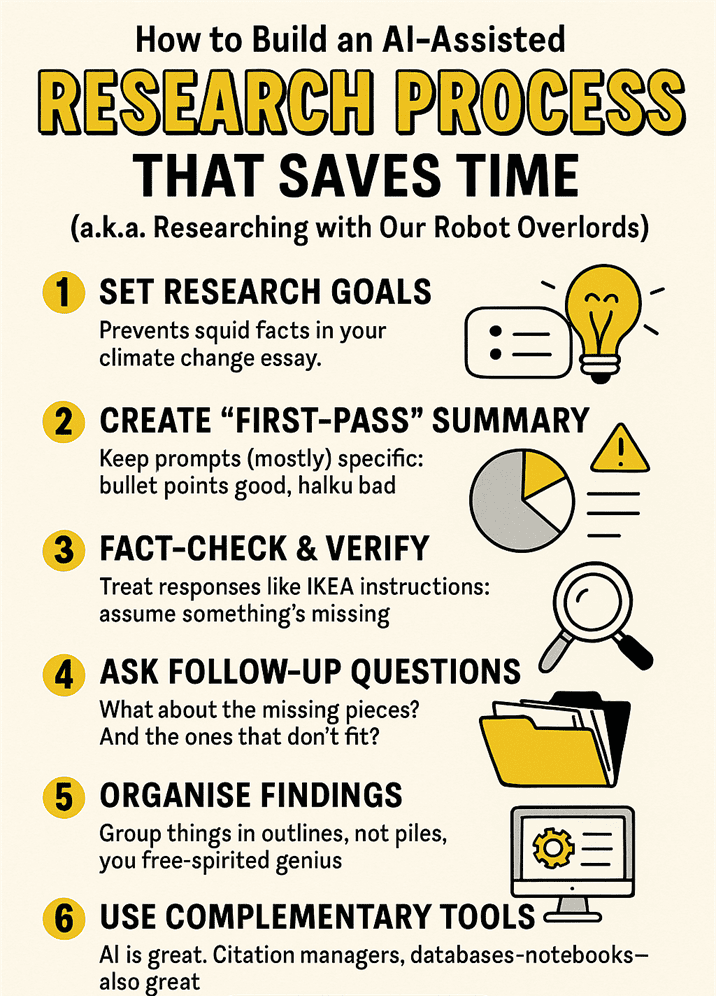
What do you think? Worth it? Prefer words? Let me know…
1. Setting your research goals
This is your “don’t wander into Wikipedia at 3 a.m.” safeguard.
Goals keep you focused, and focus keeps you from explaining squid mating habits in your renewable energy paper.
Ask yourself:
- What exactly am I trying to answer?
- Do I need a broad overview or deep analysis?
- Who am I doing this for? Myself, my boss, my thesis advisor, my cat?
Write your goals down before you touch AI.
It’s the difference between “I researched climate change policy” and “I now know more about medieval heating methods than I ever wanted to.”
2. Using AI to create a first-pass summary
This is where you toss your question to AI and get a neat little info platter back.
When prompting AI for your first pass:
- Be specific: “Explain the causes of the 2008 financial crisis for a high school audience” > “What happened in 2008?”
- Ask for formats: Bullet points, tables, graphs, timelines.
- Request sources, even though you’ll verify them later.
Think of this stage as the scouting mission. You’re mapping the territory, not planting the flag yet.
3. Fact-checking and verifying with reputable sources
If AI says something, your first question should be, “Oh really? Where’d you hear that?”
Fact-checking checklist:
- Use peer-reviewed journals, official reports, and reputable news outlets.
- Watch out for outdated info, especially in fast-moving fields like tech, health, or pop culture.
- Cross check claims in at least two credible places.
Remember: AI hallucinations aren’t trippy and fun. They’re wrong answers with a straight face and aren’t afraid to make you look bad.
4. Using AI to generate follow up questions for deeper insights
This is where things get spicy.
Ask AI:
- “What’s missing from this explanation?”
- “What are common misconceptions about this topic?”
- “What’s the opposite perspective?”
Follow up questions are how you stop being a parrot and start being a detective.
It’s where you can flesh out the research to answer specific questions or approach from specific perspectives.
5. Organising research findings into usable outlines
Information without organisation is just brain clutter.
Best practices:
- Group info by theme or category.
- Keep your sources linked directly to the facts they support.
- Use AI to tidy your messy notes into a clean outline.
It’s like asking a friend to help you clean your room, but instead of shoving everything in the closet, they actually sort your socks.
Tools that complement AI research
AI is the flashy sports car but you still need good brakes, mirrors, and maybe a GPS.
- Citation managers: Zotero, Mendeley, EndNote
- Databases: JSTOR, PubMed, Google Scholar
- Note-taking apps: Obsidian, Notion, Evernote
- Plagiarism and originality checkers: Turnitin, Copyscape
AI as a research accelerator, not a final authority
Think of AI as your research sous-chef. It chops, stirs, and preps, but you decide the recipe, taste test the soup, and make sure no one accidentally eats the bay leaf.
Use AI to work faster, think wider, and dig deeper, but never outsource your brain entirely.
AI researcher FAQs
Q: Can I just copy AI answers and call it research?
A: You can, in the same way you can eat nothing but instant noodles for a month, but you’ll be missing important nutrients, and eventually, someone will notice. AI can give you a great starting point, but it doesn’t replace actual research.
Raw AI output might contain errors, outdated information, or ideas presented without proper context. If you skip fact-checking, you risk spreading misinformation, or worse, getting caught in an embarrassing “Actually, that’s not true” moment during a presentation.
How do I know if a source is reputable?
Look for signs of credibility:
- Authorship — Is the author qualified in the field? Do they list credentials?
- Publisher — Is the source from a peer-reviewed journal, a reputable media outlet, or an official institution?
- Citations — Are claims backed by other credible sources?
- Currency — Is the information recent enough to be accurate?
If the site looks like it was last updated during the MySpace era, it might not be your best reference.
What if AI gives me conflicting answers?
Treat it like two friends arguing over pineapple on pizza. They both have opinions, but neither is the “truth” until you check the facts.
Start by identifying exactly what the conflict is (different numbers? different interpretations?). Then consult primary or trusted secondary sources. If the conflict still exists in reputable sources, note it in your research, that’s actually valuable insight, because it means the topic is genuinely debated.
How often should I fact-check AI results?
Always. Every. Single. Time. Even if the information seems obvious or harmless. AI can mix true facts with incorrect ones in the same sentence, and because it’s presented smoothly, you might not notice. Think of AI like that overly confident friend who insists on their trivia answers. Charming, but wrong surprisingly often.
Which is faster: traditional research or AI-assisted?
AI-assisted research almost always wins for speed, especially for gathering broad overviews, brainstorming ideas, and organising notes. However, traditional research is still the gold standard for accuracy and depth.
The real magic happens when you combine them: let AI do the heavy lifting for the initial sweep, then switch to traditional verification and deep reading for the important details. This combo can cut hours off your workflow while keeping quality high.

